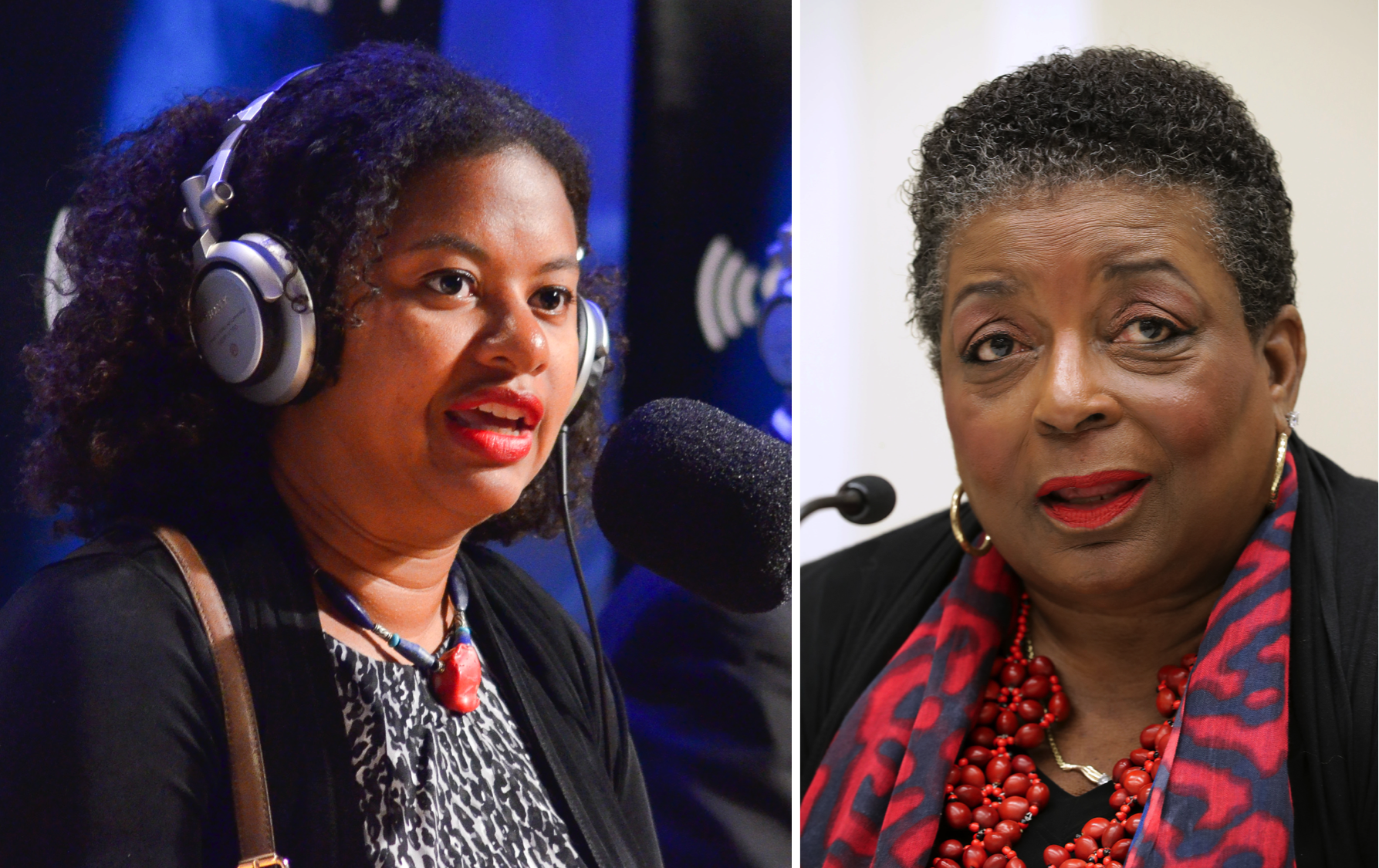
In an eleventh-hour twist to a case that has roiled the Washington, D.C. arts community since last spring, two nominees to the D.C. Commission on the Arts and Humanities (DCCAH) who had pushed for racial equity in its grant-making were finally confirmed on the eve of the November 3 deadline to do so.
Earlier this week, Cora Masters Barry and Natalie Hopkinson greeted dozens of activists rallying on U Street to demand that the Washington D.C. Council confirm their nominations to the city arts commission, where they hold sway over a $40 million budget. But after the legislature’s chairman declined to hold a hearing on their nominations, it took an emergency bill the evening before to force a vote among lawmakers, which saved their positions on the commission.
According to protesters, this prolonged political standoff over the arts commission has become a larger referendum on how Washington’s local government serves its majority-Black population.
Over the last six months, Barry and Hopkinson have received backlash for pressing the DCCAH to change its grant-making formula in support of a more racially diverse cohort of cultural groups. The adjustments unanimously passed earlier this year but upset several major Washington arts organizations, who saw their grants fall by more than 60 percent. Phil Mendelson, D.C. Council chairman, sided with the institutions, expressing dismay at the size of the cuts, and subsequently blocked the activists’ confirmation by disallowing a vote.
D.C. Council Chairman Phil Mendelson makes remarks as Mayor Muriel Bowser presents her fiscal year 2021 budget to the city council in Washington, D.C. Photo: Bill O’Leary/The Washington Post via Getty Images.
The women waited nearly six months for a hearing, and Mendelson frequently referred to a “mess” within the commission without calling them out by name. His rhetoric soured further over the weekend as the confirmation deadline approached. “Unfortunately, many members of the commission have complained to me about their divisiveness,” Mendelson said in an October 31 statement, listing a number of unattributed insults against the women that he claimed to have heard from other officials. “Cora Barry and Natalie Hopkinson have antagonized and alienated their colleagues, and not in a good way.”
Despite Mendelson’s stance, the tenor of the chairman’s statement still came as a shock to Barry and Hopkinson. “He decided to go the character assassination route,” said Hopkinson before the vote. “It’s a sad and demoralizing statement that voices for inclusion can be expelled and dismissed.”
Mayor Muriel Bowser nominated the two women to the commission in 2019 during a lull in a protracted feud between herself and the district’s legislature over who controls DCCAH. As the political rancor has surged again, so too have accusations of cronyism and racism against the organization, which has struggled to establish its independence while going through four executive directors since 2018.
Earlier this year, the business consultant Reginald Van Lee became chairman of the commission; meanwhile, Hopkinson and Barry have waited for their audience with the Council. Hopkinson is a Howard University professor who researches the history of go-go music. Barry is a longtime community advocate and was married to the late Mayor Marion Barry.
“To my knowledge, there has been no disruptive, divisive or otherwise unprofessional behavior amongst any of the commissioners,” Van Lee wrote in an email to council members over the weekend, saying that Mendelson’s other accusation this weekend that Barry violated ethics and conflict-of-interest laws when she voted on a grant for her own organization was inaccurate, because the panel choose applicants blindly.
The D.C. Commission on the Arts and Humanities oversees a budget of some $40 million to support large institutions and public art initiatives such as this 2014 mural by local artist Stan Squirewell and poet Afaa Michael Weaver. Photo: Lucian Perkins for The Washington Post via Getty Images.
Bowser also defended the two women, criticizing the D.C. Council during a November 1 press conference in which she described Mendelson’s most recent complaints as sexist.
Finally, on Monday, council member Robert White—who recently announced a run for mayor next year—introduced an emergency bill to approve Barry and Hopkinson’s nominations and effectively override Mendelson’s authority. By Wednesday, the emergency bill passed through the legislature and all council members except Mendelson voted in favor of reconfirming the women to their spots on the commission.
“Re-orienting the commission was not going to be an easy task,” White said in a statement. “But it really bothers me that two Black women who would not take no for an answer are being described as angry Black women.”
Hopkinson said she was pleased that councilmembers like White took action on her behalf. “It was really validating,” she told Artnet News. “I will continue to push these issues around inclusion and equity in the art world.”